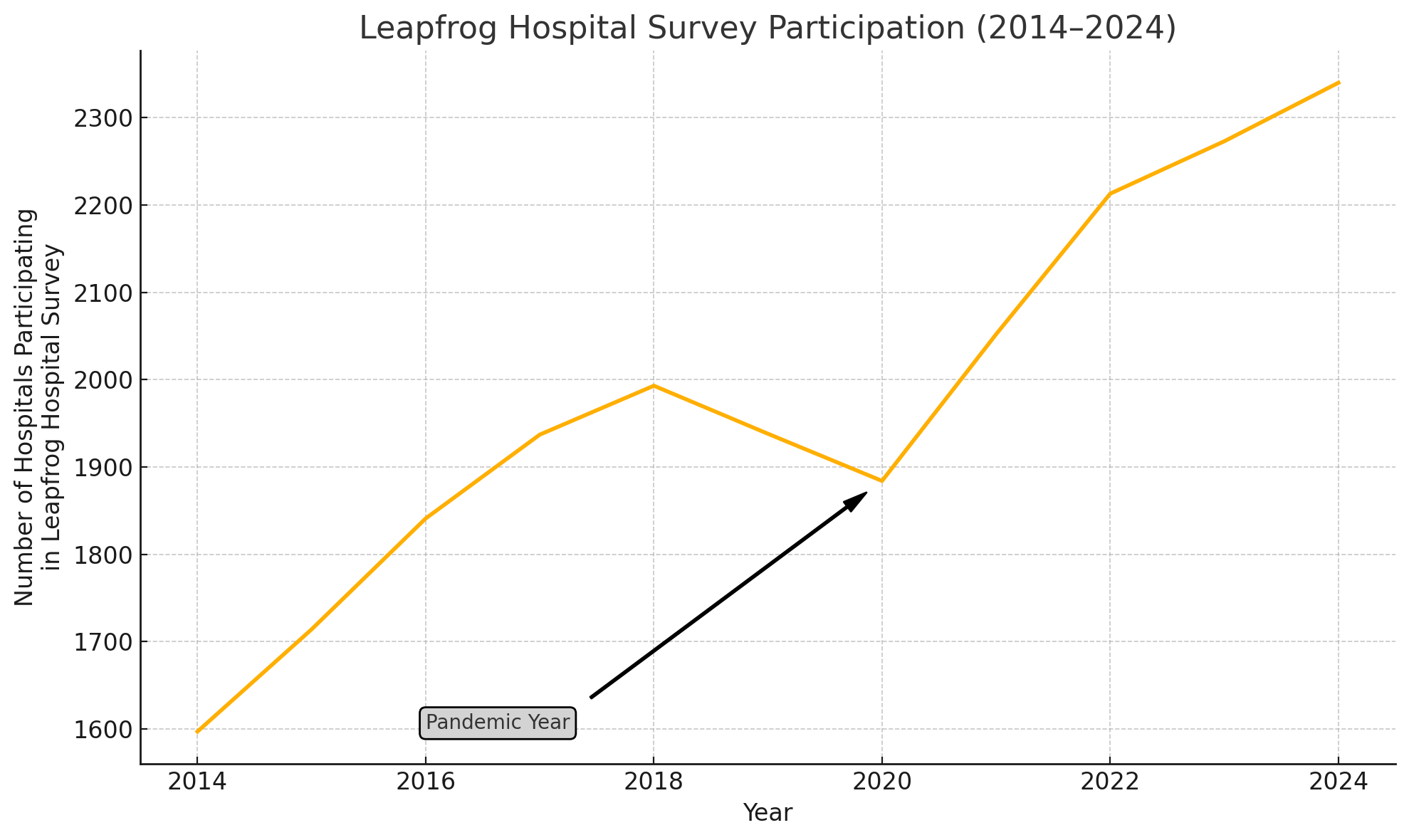When The Leapfrog Group announced its Spring 2025 Hospital Safety Grades, five Tenet Healthcare hospitals in the Palm Beach area of Florida filed a lawsuit against Leapfrog to try to suppress publication of their Safety Grades - three "Fs" and two "Ds." See Leapfrog's detailed statement here.
Leapfrog will never stop fighting for patients. Over 50,000 lives could be saved every year if all hospitals performed at the level of “A” hospitals. We urge these hospitals to redirect their resources from litigation to what truly matters: making care safer.
In the lawsuit filings, Tenet Healthcare made allegations about Leapfrog that are demonstratively false. The following are facts about The Leapfrog Group to set the record straight.
- Leapfrog Hospital Safety Grades are not automatically improved if a hospital participates in the Leapfrog Hospital Survey, nor are Safety Grades automatically lowered if a hospital declines to participate. In spring 2025, over 400 hospitals declined to participate in the Leapfrog Hospital Survey and earned Safety Grades superior to those earned by the five Tenet hospitals in the lawsuit.
- The Leapfrog Hospital Survey is free for hospitals to complete. Hospitals do not pay for their Safety Grade and all of our ratings and data are free for the public to access. In 2024, hospitals participating in the Leapfrog Hospital Survey accounted for 80% of all inpatient beds in U.S. hospitals. The Leapfrog Hospital Survey has seen a 62% increase in participation over the last 10 years. See chart below that demonstrates this growth in the number of hospitals across the U.S. that choose to transparently report their quality and safety data.

- Leapfrog’s ratings are unbiased, demonstrated by the fact that Leapfrog reveals all the data and calculations used in everything reported about facilities. No other ratings organization in any industry has this level of transparency. It would be virtually impossible to bias ratings for or against any one facility when all of the calculations and data are published.
- We have never sold consulting services to hospitals or anyone else on quality improvement.
- Hospitals that earn an “A” on the Hospital Safety Grade freely promote that achievement in the media and we support them with tools and guidance at no cost.
- Leapfrog offers a variety of opportunities for individual meetings and dialogue, and requests hospital feedback on methodological issues and changes.
- Hospitals, researchers and businesses can license Leapfrog data for a fee. The fee does not result in a profit for Leapfrog, but does pay for the costs of the Survey and Safety Grade, which are otherwise free to the public and to hospitals.
- Hospitals, health plans and other health care industry players are ineligible for governance authority, such as a Board seat, within Leapfrog. Many participate on advisory committees and expert panels, for which we are grateful.
- Our methodology is based on:
- Independent Expertise: Our Safety Grade methodology is developed by the nation’s top patient safety experts at the Johns Hopkins Armstrong Institute and reviewed by an independent National Expert Panel.
- Public Data: The majority of the data used to calculate the Safety Grade comes from publicly available Centers for Medicare & Medicaid (CMS) data. While hospitals can voluntarily report additional information about their safety annually via the Leapfrog Hospital Survey, their grade ultimately reflects their performance. There is no preferential treatment for hospitals who submit to the Survey—it only gives them more opportunity to tell their safety story.
- Full Transparency: Our full methodology is publicly available for anyone to review. It is also free to search all graded hospitals on our website and see exactly how they score on every measure on the Safety Grade, as well as how they compare to the national average.
